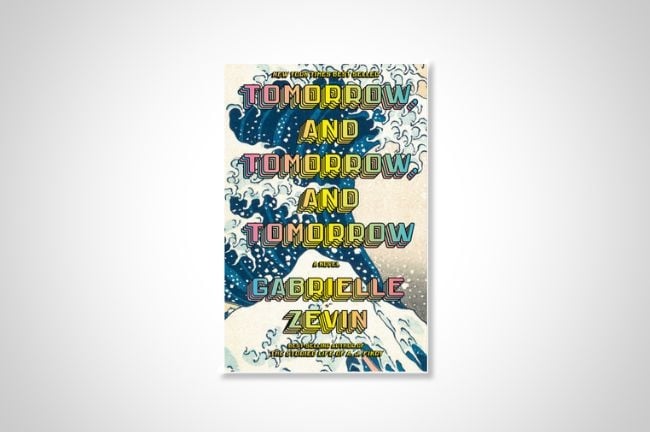You have /5 articles left.
Sign up for a free account or log in.

Penguin Random House
Tomorrow, and Tomorrow, and Tomorrow: A Novel by Gabrielle Zevin
Published in July 2022
The novel Tomorrow, and Tomorrow, and Tomorrow was recommended to me by Bill Gates. Well, not personally recommended. Bill and I don’t know each other. But I do subscribe to his blog.
In 2016, I wrote a blog post called “3 Things That Bill Gates’s Book Blog Tells Us About Wealth.” In that post, I argued that reading lots of books is one way to live like a billionaire.
Gates reads and mostly recommends nonfiction, so when he highlights a novel, you know it is likely to be good.
The lines in Bill’s review that convinced me to read the book were,
Tomorrow, and Tomorrow, and Tomorrow resonated with me for personal reasons, but I think Zevin’s exploration of partnership and collaboration is worth reading no matter who you are. Even if you’re skeptical about reading a book about video games, the subject is a terrific metaphor for human connection.
Some of my best friends are gamers. I’ve never been one. But where Tomorrow, and Tomorrow, and Tomorrow hit home for me (as it did for Gates) is in the novel’s exploration of collaboration.
We learn in the novel that game design is a profoundly creative and collaborative process. Anyone fortunate enough to work on a team designing and delivering an online course will recognize many of the dynamics described in Tomorrow, and Tomorrow, and Tomorrow.
The super-secret evil plan that I’ve been stubbornly working on for the past 25 years is online learning changing residential education. This plan involves shifting in-person teaching from a solo to a team sport. Quality online courses are built collaboratively. Professors (the subject matter experts and passionate educators) are paired with educational professionals with expertise in learning design and educational technologies.
Yes, I know that not every online course or program takes a team approach to design and delivery. I’d argue that the best online courses and programs are built around a high-resource and high-intensity development model. Investments are front-loaded, as constructing courses that align with learning science is hard work, but the results (in terms of student learning and engagement) can be fantastic.
Imagine a world in which all residential courses are designed and delivered by a team of educators, where professors collaborate with learning designers, media educators, assessment experts, librarians and media professionals.
Sure, some residential course designs and implementations are done by teams. But most are not. And, likely, many professors would object to moving their work from a solo to a team sport.
The beauty of online education is that there is usually an openness to collaboration. Faculty members who choose to teach online almost always welcome the partnership of nonfaculty educators. (Almost always, there are always exceptions.)
Online education is a fulcrum with which to shift institutional culture toward a team approach to course design.
As Tomorrow, and Tomorrow, and Tomorrow brings to life, the creative team processes of computer game design will be legible to learning designers and the professors who love them.
What are you reading?




